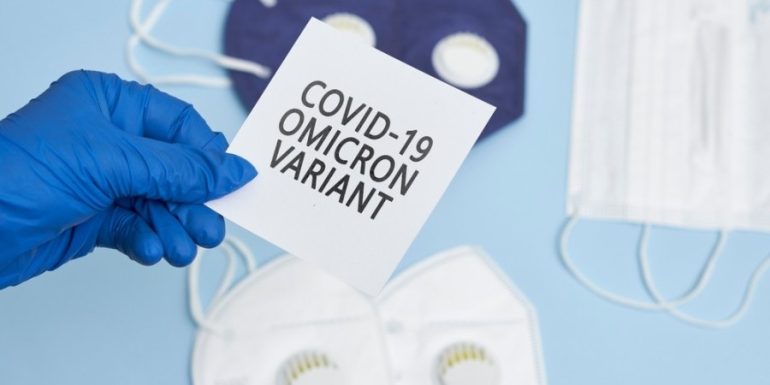The Omicron variant, which spreads much faster than previous coronavirus mutations, may not help countries achieve the so-called herd immunity COVID-19, according to experts.
From the first days of the pandemic, public health officials expressed the hope that it was possible to achieve herd immunity to COVID-19, if a fairly high percentage of the population was vaccinated or infected with the virus.
According to a Reuters analysis, those hopes were dashed as the coronavirus mutated into newer, more rapidly transmitted variants, allowing people to be vaccinated or previously infected with the virus. COVID-19.
Some health officials have relied on the possibility of herd immunity since Omicron appeared.
The fact that the variant spreads so quickly and causes milder disease can in a short time affect many people and provide this protection, officials say.
Disease experts note, however, that Omicron's transmissibility is enhanced by the fact that this variant is more potent than its predecessors in infecting vaccinated or previously infected individuals. This adds to the evidence that the coronavirus will continue to find ways to penetrate our immune defenses, they said.
"Reaching a theoretical threshold beyond which transmission will stop is rather unrealistic, given the experience we have had with the pandemic," Dr. Olivier le Polen, a World Health Organization (WHO) epidemiologist, told Reuters.
This is not to say that previous immunity offers no benefit. Instead of herd immunity, many experts in an interview with Reuters said there was growing evidence that vaccines and previous infection would help boost the population's immunity. COVID-19, which makes the disease less severe for those who have been infected or re-infected.
"As long as the population's immunity is maintained with this variant and future variants, we will be lucky and the disease will be manageable," Dr David Heymann, professor of infectious disease epidemiology at the London School of Hygiene and Tropical Medicine, told Reuters.
Not like Measles
The current vaccines against it COVID-19 designed primarily to prevent serious illness and death rather than infection. However, clinical trial results in late 2020 showed that two of the vaccines were more than 90% effective against the disease and initially sparked hope that the virus could be greatly reduced by extensive vaccination, similar to the way it was fought. measles with vaccination.
With SARS-CoV-2, two factors have since undermined this picture, said Marc Lipsitch, an epidemiologist at the Harvard TH School of Public Health.
"The first is that immunity, especially to infection, which is the important kind of immunity, is weakening fairly quickly, at least from the vaccines we have at the moment," he said.
The second is that the virus can mutate rapidly in a way that allows it to avoid protection against vaccination or previous infection - even when the immune system is not weakened.
"It changes the game when vaccinated people can still spread the virus and infect other people," said Dr. David Wohl, an infectious disease specialist at the University of North Carolina at Chapel Hill School of Medicine.
He warned against interpreting that Omicron infection would increase protection, especially against the next variation that may occur. "Just because you had Omicron may protect you from becoming infected with Omicron again," Wohl said.
"Developing vaccines that provide immunity to future variants or even multiple types of coronaviruses could change that," said Passy Pentinen, a leading influenza specialist at the European Center for Disease Control and Prevention, but that it would take time.
However, the hope for the herd's immunity as a return ticket to normal life is hard to extinguish.
"These things were written in the media: We will reach the immunity of the herd when 60% of the population is vaccinated. It did not happen, then they said for 80%. "Again, it did not happen," Francois Balloux, a professor of computer systems biology at University College London, told Reuters.
"As horrible as it sounds, I think we need to prepare for the fact that the vast majority, virtually everyone, will be exposed to SARS-CoV-2," he said.
World health experts expect the coronavirus to eventually become endemic. The appearance of Omicron, however, has raised questions about when exactly this can happen.
"We will get there," said Le Polain of the WHO, "but we are not there at the moment."
Source: Reuters
